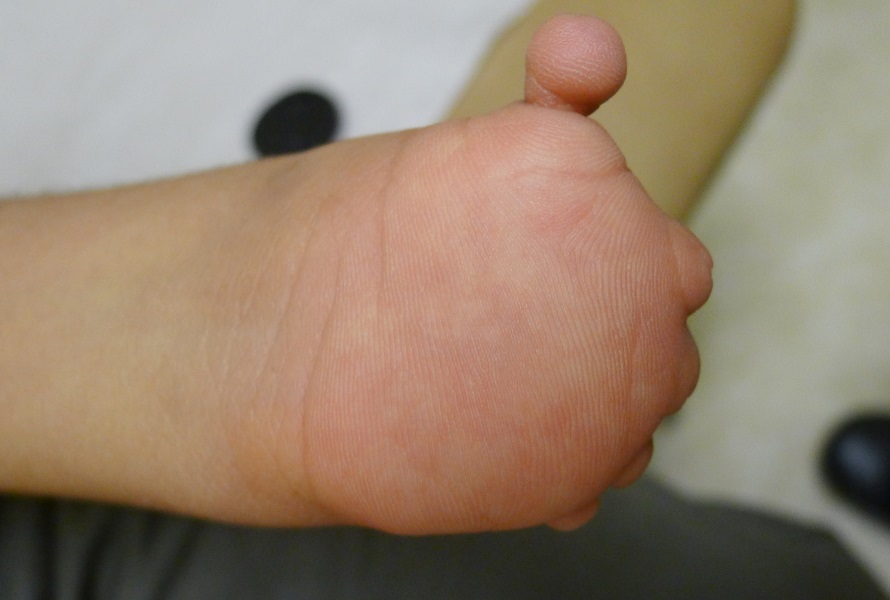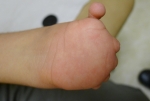
We treat a lot of kids with congenital differences of the upper limb. Many times kids with these differences function at a very high level with their affected limb. We have children in our practice who have bilateral (both sides) congenital amputations, and continue to surprise me with their function.
Don’t prosthetic limbs help? Somewhat surprising to most people, many times kids with congenital differences prefer to use their limb without a prosthesis!
Why is that? A recent study from the University of Groningen in The Netherlands sheds some light onto the subject.
The authors of the study took 31 patients (mostly children, but with some young adults) that had an amputation that occurred congenitally, and tested the sensation of the skin around the circumference of their stump and compared it to their unaffected hand.
What they found was remarkable. Kids had better sensation on the circumference of their amputated stump than they did on their ‘good’ hand. Stereognosis, the recognition of he shape of an object, was surprisingly good in the amputated side, though not as good as the unaffected hand.
So what does this mean?
We see a high number of kids with congenital amputations who do not use their prostheses. This study give some insight as to why this may be the case. Because the prosthesis covers this very important source of sensory input, the circumference of the amputation stump, kids may be telling us that feeling what they have in their amputated limb is more important than having robotic fingers.
J Rehabil Med. 2014;46(1):51-8. Stump sensibility in children with upper limb reduction deficiency. Reinkingh M1, Reinders-Messelink HA, Dijkstra PU, Maathuis KG, van der Sluis CK.
This post does not provide medical advice. It is intended for informational purposes only. It is not a substitute for professional medical advice, diagnosis or treatment. Never ignore professional medical advice in seeking treatment because of something you have read on any web site. If you think you may have a medical emergency, immediately call your doctor or dial 911.


